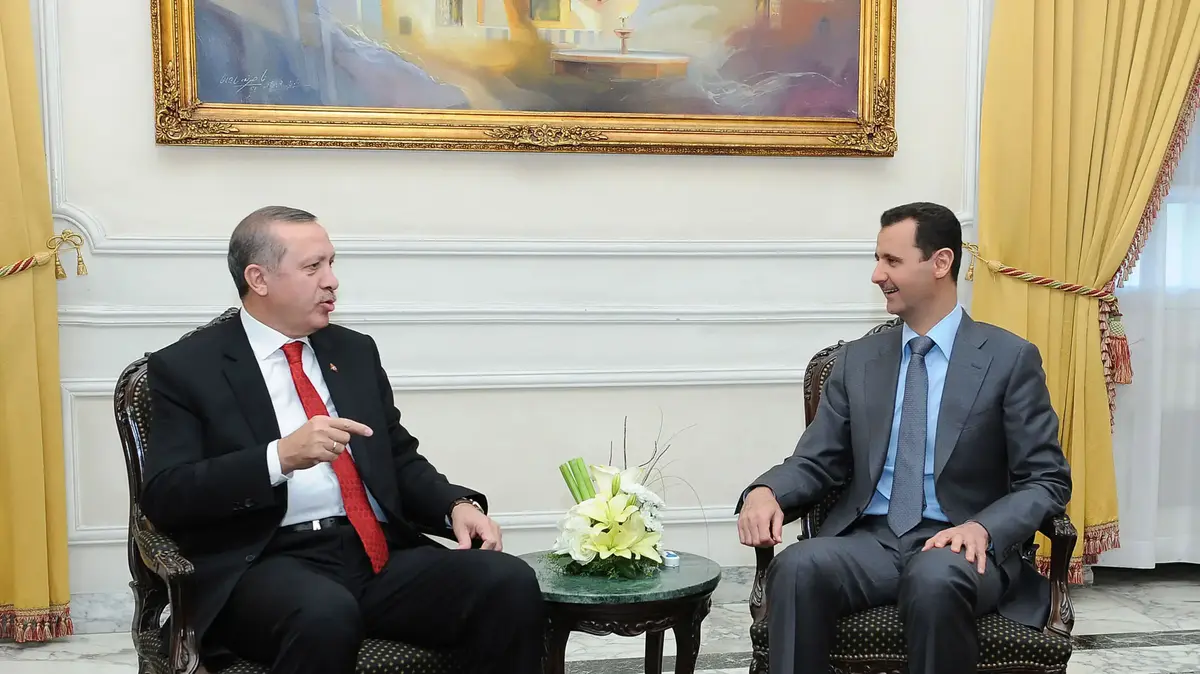Syrian President Bashar Assad and Turkish Prime Minister Recep Tayyip Erdogan at a meeting in Aleppo, February 6, 2011 (Photo: Reuters)
Syrian President Bashar Assad said yesterday (Thursday) that the talks with Turkey mediated by Russia should lead to the "end of the occupation" of parts of the country by Ankara.
This was the first reference by the ruler of Syria to a meeting held last month between the defense ministers of the two neighbors, for the first time since the beginning of the civil war more than a decade ago.
"For these meetings to be useful, they should be based on coordination and prior planning between Syria and Russia," Assad told Alexander Lavrentiev, Russian President Vladimir Putin's envoy to Syria.
This, according to the ruler of Syria, in order to "stop the occupation and support for terrorism".
Assad considers the rebel organizations, which Ankara supports, "terrorists", while they fear that Ankara will abandon them to their fate.
Following the meeting of the defense ministers, the foreign ministers of the three countries are expected to hold a follow-up meeting soon.
Turkey's Foreign Minister, Mevlut Cavusoglu, confirmed yesterday that the meeting will take place in Moscow, possibly at the beginning of next month.
Turkey sided with the rebels in Assad's regime and sent troops across the border, but recently it has signaled its desire for normalization with the government of Recep Tayyip Erdogan.
Russia, which has maintained good relations with Turkey despite its involvement in the war and aid to Assad, is encouraging Assad and Erdogan to put their differences behind them.
The two have a common enemy - the Kurdish forces in northern Syria, supported by the United States - and are determined to deprive them of the autonomous government they established under the auspices of the protracted war.
Since 2016, Turkey has conducted a series of military operations against the Kurdish forces, which led the war on the Islamic State (ISIS) organization.
Erdogan even threatened to launch another large-scale operation after the attack in Istanbul in November, which Ankara claims was carried out by the Kurdish underground (PKK).
Russia put pressure on Turkey to refrain from such action, and encouraged Ankara to resolve the crisis through negotiations with Damascus.
Erdogan, who previously called Assad a "terrorist", has expressed in recent months a willingness to meet with him.
The two had good relations before the outbreak of the war in 2011, and Erdogan even tried to mediate between Syria and Israel.
With the beginning of the protests against Assad, which were part of the "Arab Spring", Turkey called on Syria to carry out political reforms and later urged Assad to leave power and began supporting the rebels militarily.
However, Russia's intervention in the war, along with the support of Iran and Hezbollah, tipped the scales and the Assad regime regained control over most parts of the country.
Turkish forces prevented the fall of the last bastion of the opposition in Idlib province, how the waves of refugees to Turkey's territory burdened its economy.
According to estimates, Assad and Erdogan will meet only after the elections in Turkey, which are expected to be held by June and be extremely close.
The United States, Turkey's NATO ally, has made it clear that it opposes normalization with the Assad regime, which a State Department spokesman in Washington recently described as a "brutal tyrant."
news
world news
the Middle East
Tags
Syria
Bashar Al Assad
Turkey
Russia

